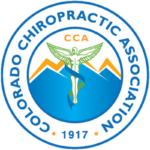Structural & Functional Assessment of the Equine Spine - Neurophysiology Online Module
Introductory Pricing
Course Description
Course qualifies for CCA membership discount. Click here if you are a CCA member.
This online course module provides a basic introduction to neurophysiologic principles related to axial skeleton pain. Content includes information of the pain sensitive tissues with the axial skeleton, spinal pain mechanisms, and subjective and objective measures of musculoskeletal pain in horses. Neuroanatomical descriptions of nociceptors and other spinal tissue receptors that contribute to acute and chronic pain syndromes are included. Spinal pain mechanisms are reviewed as they relate to peripheral and central sensitization, ganglionitis, and effects on mechanoreception and motor control issues. An introduction to the physical, functional, and behavioral aspects of pain are presented.

This course has been approved by the IVCA as specific animal chiro CE hours, and is eligible for 3.0 hours.
Category
Sports Medicine & Chiropractic
Instructors
Dr. Kevin Haussler
Race Approved CE
3.0 Hours
Cost
$150.00
Course Type
Online
Agenda
Lectures
Section 1
- Pain-Sensitive Tissues within Axial Skeleton
- Innervation of the Skin
- Myofascial Innervation
- Joint Innervation
- Vertebral Body Innervation
Section 2
- Spinal Pain Mechanisms
- Behavioral Issues
- Myofascial Mechanisms
- Segental Mechanisms
- Joint Position Sense
- Impaired Motor Control
Section 3
- Recognizing Pain in Horses
- Diagnosing Pain
- Pain Measures
- Subjective-Direct Measures
- Objective Measures of Pain
Instructors
Dr. Kevin Haussler
DVM, DC, PhD, DACVSMR
Dr. Haussler obtained a B.S. in agriculture from the University of Nebraska-Lincoln in 1984. He graduated in 1988 from The Ohio State University, College of Veterinary Medicine, followed by a small animal internship at the Sacramento Animal Medical Group in 1989. Dr. Haussler was a relief veterinarian for multiple small animal practices, emergency clinics, and humane societies from 1989 to 1994, when he became interested in pursuing further specialized training in the diagnosis and management of pain and musculoskeletal disorders in animals.
He enrolled in Palmer College of Chiropractic-West, a human chiropractic program, to learn how to apply human chiropractic techniques and principles to the treatment of animals with musculoskeletal-related disorders. Dr. Haussler started veterinary chiropractic practice with equine and small animal patients in 1992. He graduated with a Doctor of Chiropractic (DC) degree from Palmer College of Chiropractic-West in 1993.
Dr. Haussler went on to obtain a PhD in Comparative Pathology from the University of California-Davis, School of Veterinary Medicine in 1997. The focus of his PhD research was the evaluation of the anatomy, pathology, and biomechanics of the lower back and pelvis of Thoroughbred racehorses.
He then went on to complete postdoctoral training investigating in vivo equine spinal kinematics in 1999 at the Department of Anatomy, College of Veterinary Medicine at Cornell University and was invited to be a Lecturer at Cornell University until 2005, where he was responsible for teaching equine anatomy, biomechanical research, and initiation of a clinical Integrative Medicine Service at the Cornell University Hospital for Animals in both the large and small animal clinics that provided chiropractic, acupuncture, and physical therapy services. Dr. Haussler’s research studies have included the evaluation of in vivo equine spinal kinematics, paraspinal muscle morphometry and histochemistry, and the initiation of equine chiropractic research assessing pain and spinal flexibility.
In 2010, Dr. Haussler was invited to be a founding member of the new speciality college, The American College of Veterinary Sports Medicine and Rehabilitation, where he has served in several Board of Directors' positions and as a committee chair. Currently, Dr. Haussler is an Associate Professor at the Orthopaedic Research Center in the College of Veterinary Medicine and Biomedical Sciences at Colorado State University where he has continued research interests in objective assessment of musculoskeletal pain and the diagnosis and treatment of spinal dysfunction.






